If you’ve recently graduated high school, or you’re about to, congratulations! Completing more than a decade of schooling is no joke.
It’s an exciting time in your life. You have more freedom now than ever before… and we know it can feel a little scary, especially if you haven’t quite figured out what to do next.
That’s why we’ve put together this guide to help you navigate life after high school. Keep reading for an in-depth breakdown of the ways you can set yourself up for success and accelerate your self-discovery process.
Life After High School: Choose Your Own Adventure
After graduating from high school, you likely find yourself at a crossroads facing countless possible futures.
How do you decide which road to take?
Nobody can draw you a map because everyone’s path looks different.
Sure, some people will try to give you directions and say that one road is straighter or less bumpy than another, but in reality, everyone’s journey is different, even if they follow the same path.
The good news is that you’re in the driver’s seat, which means that you can set the direction your life’s journey will take. All you’ve got to do is pick a route and follow it to the next fork in the road and then decide again.
The first fork is simple: go to college, get a job, or take some time off.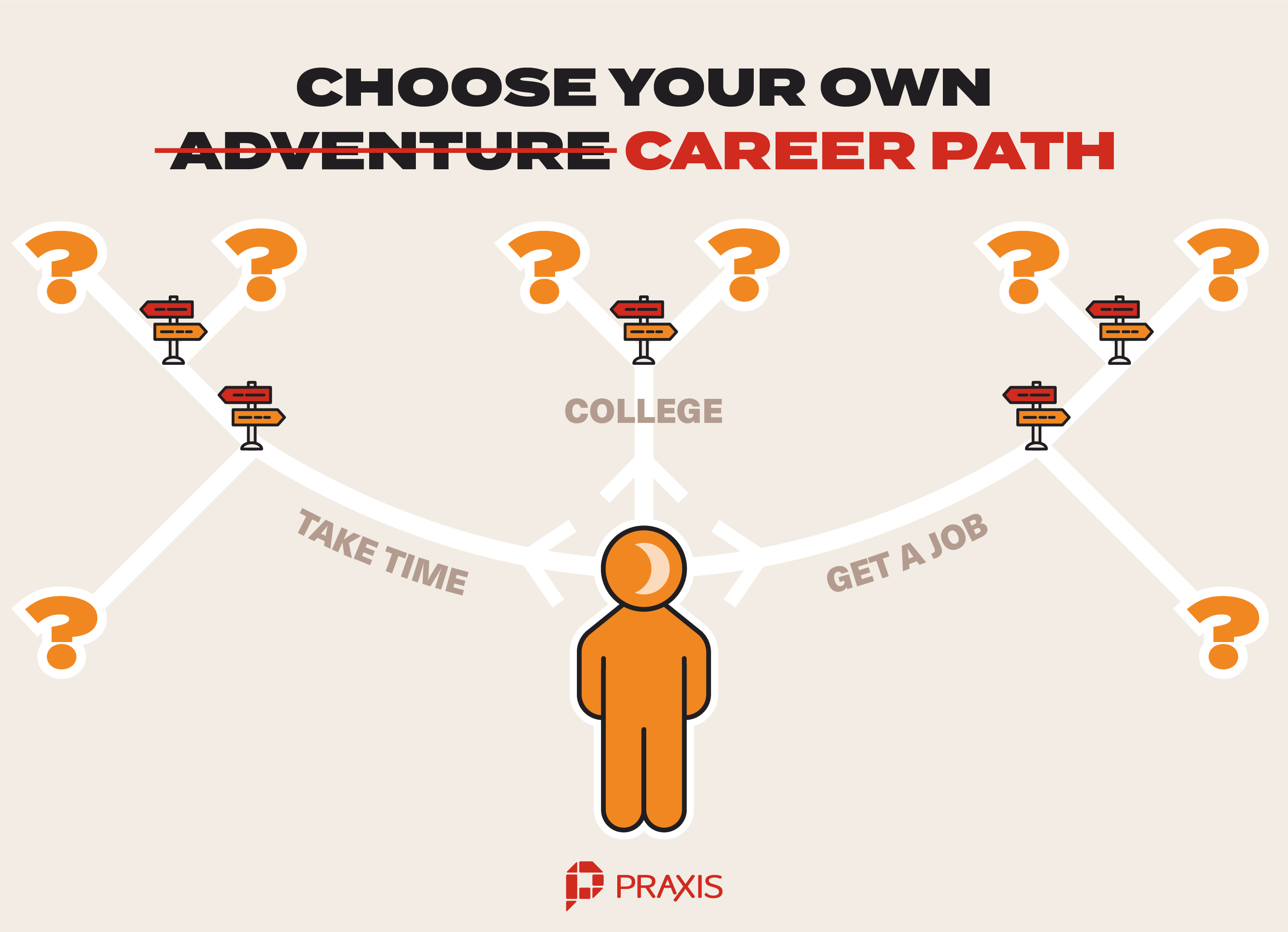
Let’s look at each of these options in more detail so you can make an informed decision.
Option One: College
If you’re like most people, you’ve heard all the arguments for going to college: variations of “you’ll earn more money” and “you’re unlikely to get a good job without a college education.”
However, seeing as you’re reading this guide, chances are you’ve already considered some of the downsides of going to college.
Here are a few of them:
- College is wildly expensive, with tuition, fees, books, room, and board at a public four-year college costing out-of-state students some $38,330 per year.
- College debt delays important life milestones.
- College takes up four years of your life that you could have been gaining real-world experience and earning money.
- College doesn’t prepare you for the workplace.
- A college degree doesn’t set you apart from the crowd anymore and won’t necessarily result in you landing a better job or earning more money – just ask the 43 percent of recent college graduates that are underemployed.
- Here are another 101 reasons not to go to college.
If you’re dead-set on a specific career that legally requires a college degree, going to college makes sense. However, before you commit four or more years of your life to study towards a specific career, get as much information about your career of choice as possible.
We believe that you should do everything in your power to validate that this is what you really want to do. For example, if you think you want to be a doctor, you should speak to as many medical professionals about the ups and downs of the job as you can. Job shadow, intern, or volunteer to get some hands-on experience so that you can test whether this is really what you want to do.
The hard truth is that unless you plan to go into academia or you attend a hands-on technical school to learn a trade, the college experience won’t give you an accurate idea of what doing the job will be like or whether you’ll find it fulfilling. This is also why college is not a good way to “find yourself” and figure out what it is you want from life.
If you’re considering college and need help figuring out whether it’s the right route for you, use our checklist of questions to ask yourself before choosing college so you can make a fully informed decision.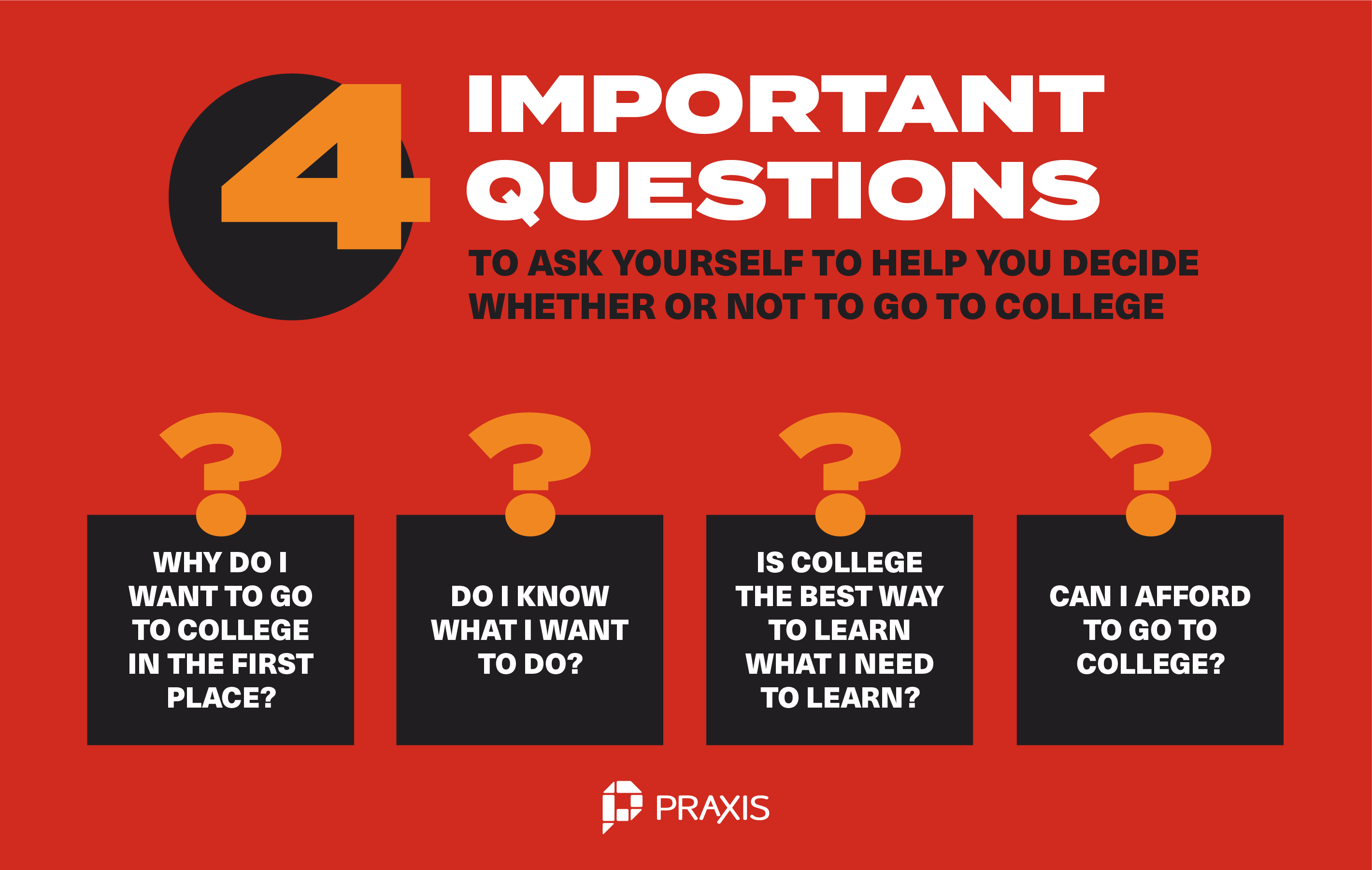
Option Two: Get a Job
Getting a job right out of high school is your second option. There are several benefits to taking this route.
The first benefit is that, instead of spending money or getting into debt as you would if you went to college, you’ll be earning money.
The second benefit is that you’ll learn plenty of useful skills that you can build on throughout your career and you’ll get a sense of which skills are most in-demand.
A third benefit of working immediately after high school is that you’ll start gaining important work experience that puts you in a better position to identify what you enjoy doing and what bores you to tears.
Early in your career, the stakes are low, which means that you can afford to experiment and take risks. Aim to get as much varied experience and learning opportunities as you can, testing different options to see what appeals to you and what you’re good at. Calculate the minimum amount of money you need to earn per month to survive and don’t let income be the determiner of the career opportunities you pursue.
The key thing is not to get complacent and stay in the first job you land out of high school if it’s not making you happy and making you feel challenged. Constantly evaluate your experiences and be hungry for more interesting and challenging positions.
If you’re worried about not being able to get a job without experience or a degree, don’t be. Don’t be afraid to work “gap jobs” to earn income while you look for something better, and read our post on getting your foot in the door for tips on making an impression by building habits that matter more than your resume.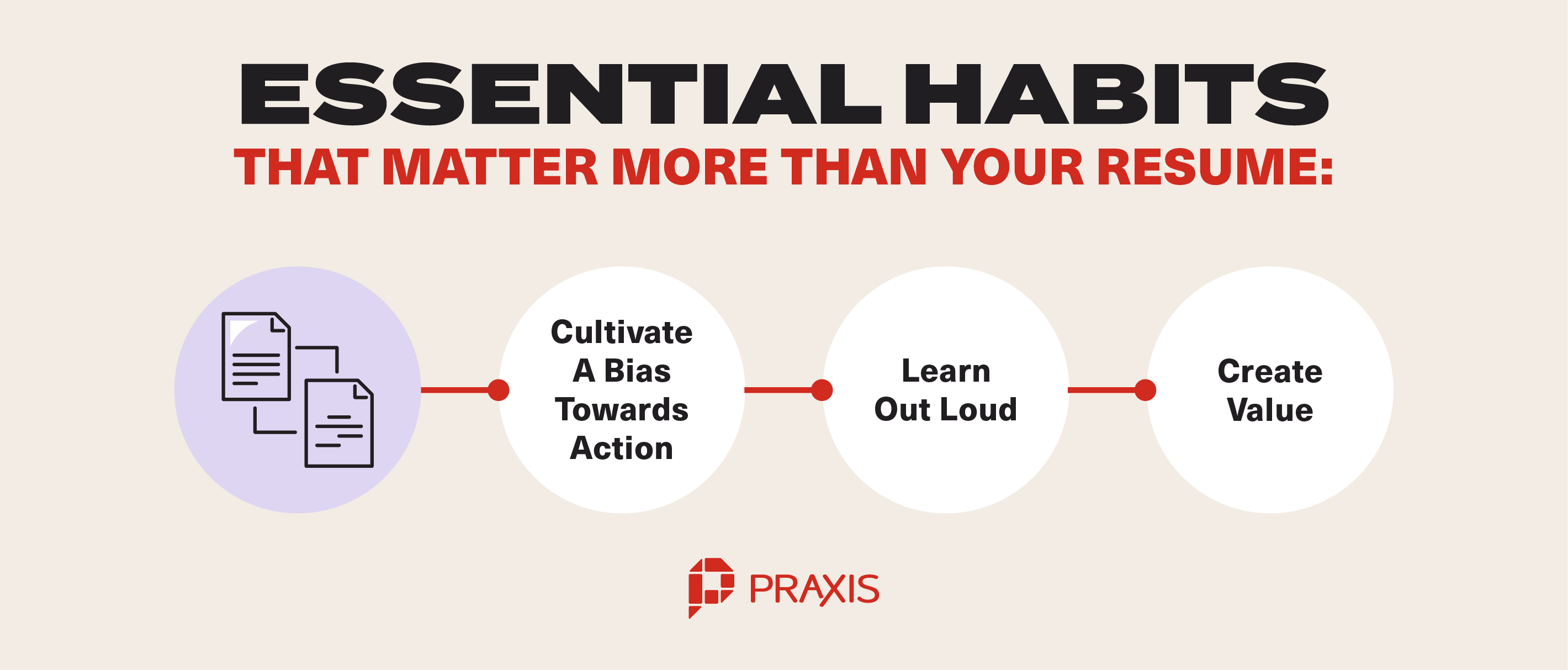
Option Three: Take Time Off
The third route available to you is taking time off after graduating high school, whether it’s a defined period like a gap year or an indefinite amount of time.
Even if you think you’re sure you know what you want to do next, taking time to reflect on what you want to do next, experiment with different things, learn some skills, gain experience, or travel and broaden your perspective is a good idea as this will either validate or discredit your assumptions. This way, you won’t waste time simply because you didn’t have enough information.
What to Do After You Graduate High School
If you choose not to go the college route, there are plenty of alternatives. Keep reading to learn more about some of your options for what to do after high school.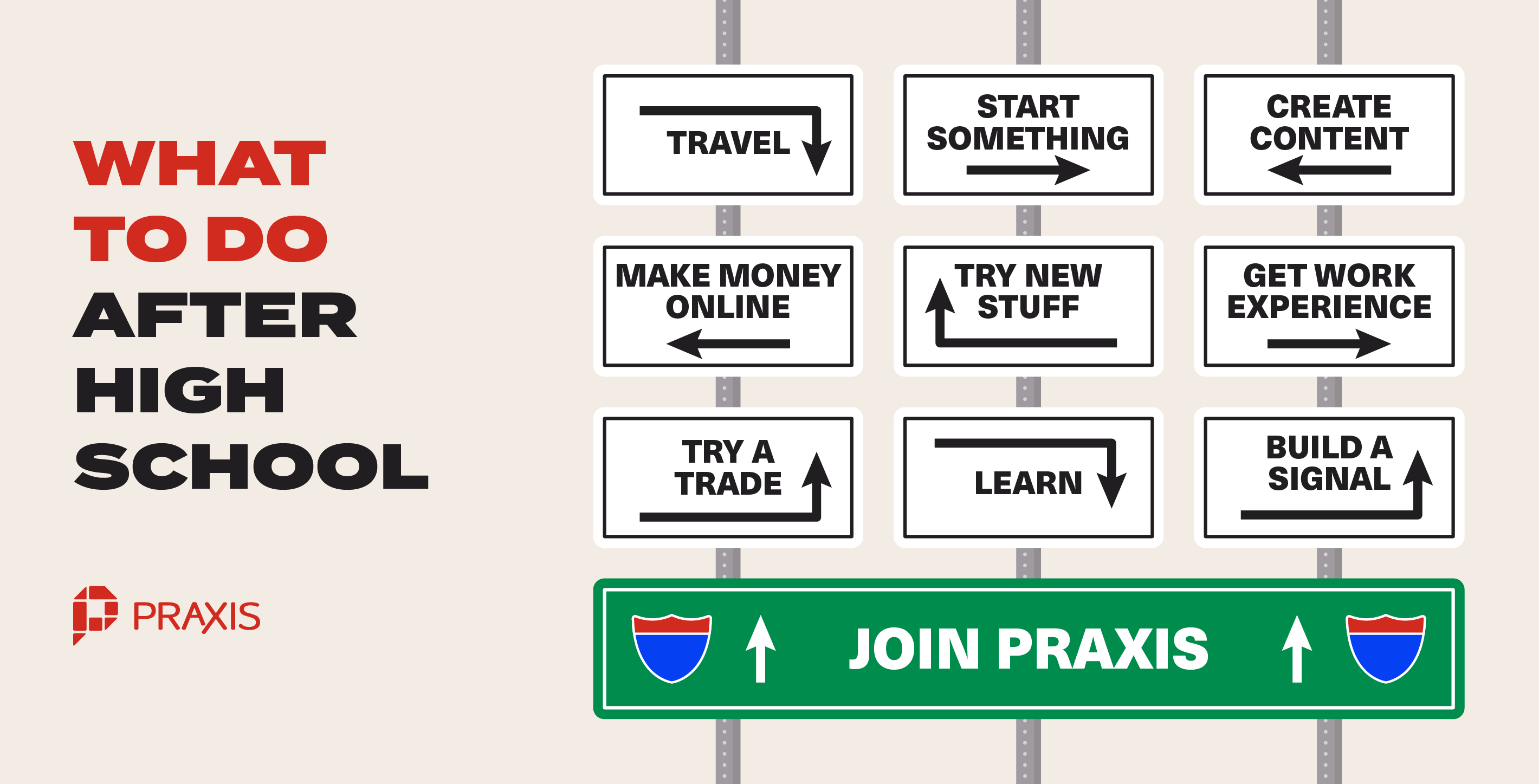
Travel
The best time to travel is while you’re young, healthy, and comfortable traveling on a budget. Traveling is a great way to broaden your horizons, gain experience of the world, and make friends. Traveling forces you out of your comfort zone and accelerates the rate at which you become independent and gain confidence.
There are plenty of ways to travel affordably, including backpacking, Couchsurfing, living in homestays, doing a workaway, housesitting, teaching English abroad, au pairing, working as crew on a yacht, and many more.
Start Something
Start a project. Whether you choose to monetize it or not is up to you, but the simple act of working on something consistently every day will teach you a lot about business, work ethic, time management, financial planning, marketing, and more.
You can base your project on one of your existing hobbies or challenge yourself to learn something entirely new, like learning how to code and building a website or app. If you enjoy writing, start a blog, or write a book. If you’re into video games, consider starting a twitch channel or playing professional eSports. If you’re interested in photography, try to turn it into a business. Start a YouTube channel. Write a cookbook.
The possibilities are endless, and you might be surprised by how much money you can make by monetizing your hobbies.
Become a Content Creator
Speaking of hobbies, if you haven’t been living under a rock for the past couple of years, you already know that you can make a decent living by creating content online, especially through a platform like YouTube or Instagram. Now, you might be thinking “I don’t have what it takes to become an influencer.”
Firstly, you’re probably wrong about that. Most of the successful influencers you see on Instagram, TikTok, and YouTube didn’t build their brands and followings overnight. It takes strategy, skill, patience, and lots of practice and consistency. Luckily, there are plenty of resources available online to help you figure it out.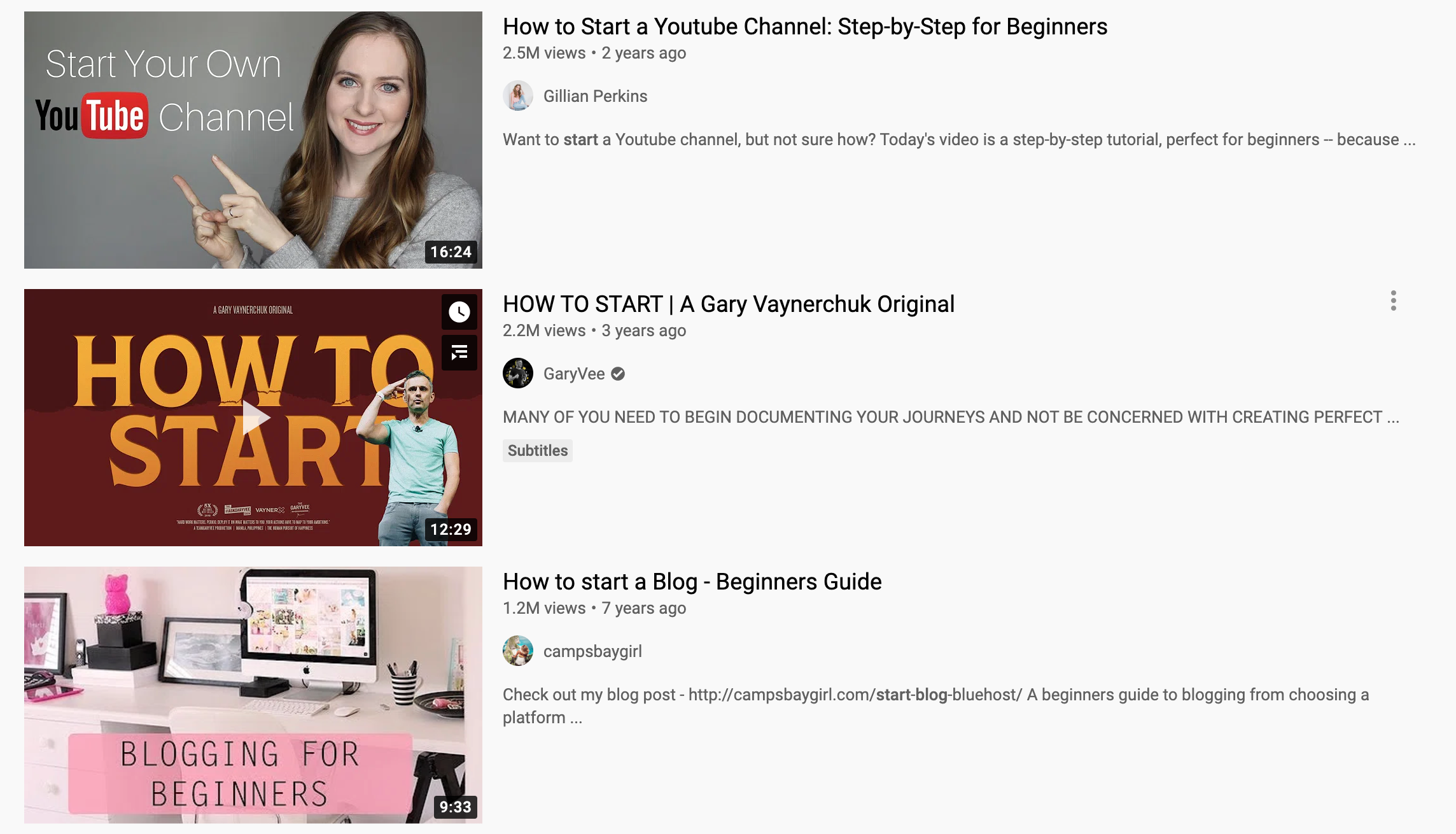
Secondly, not every content creator is a glamorous jet-setting lifestyle vlogger. If you have a hobby you’re good at or knowledgeable about, you can start creating content about that. Have a look around YouTube to see how well content about topics like DIY, crafts, gardening, hiking, makeup tutorials, video games, travel – or you name it – performs.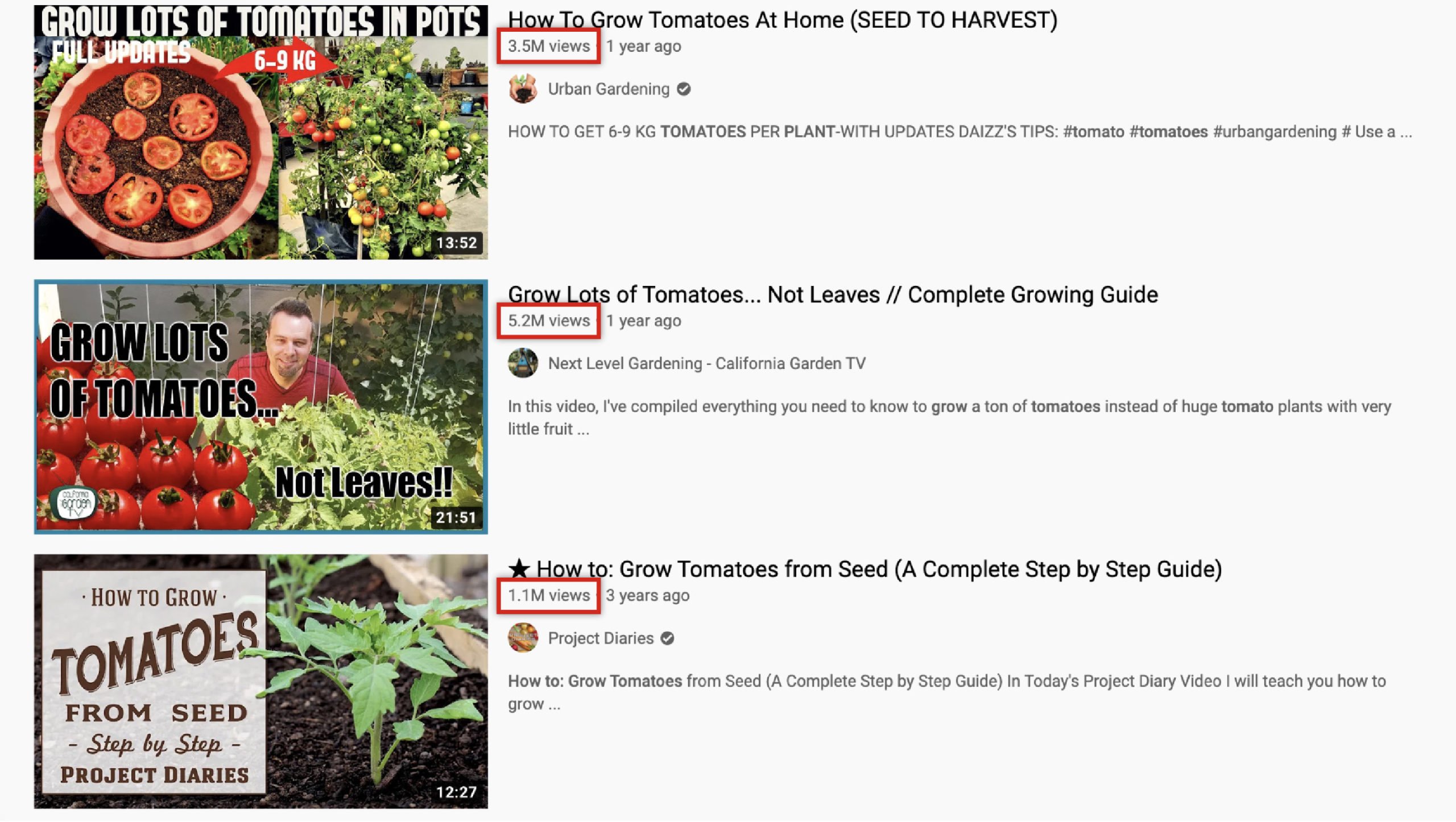
Study what these creators are doing and ask yourself whether you’d be able to do that. Odds are, you’ll need to develop some skills like filming and video editing. Even if you ultimately decide to do something else, you’ll learn a lot of valuable skills and have a blast.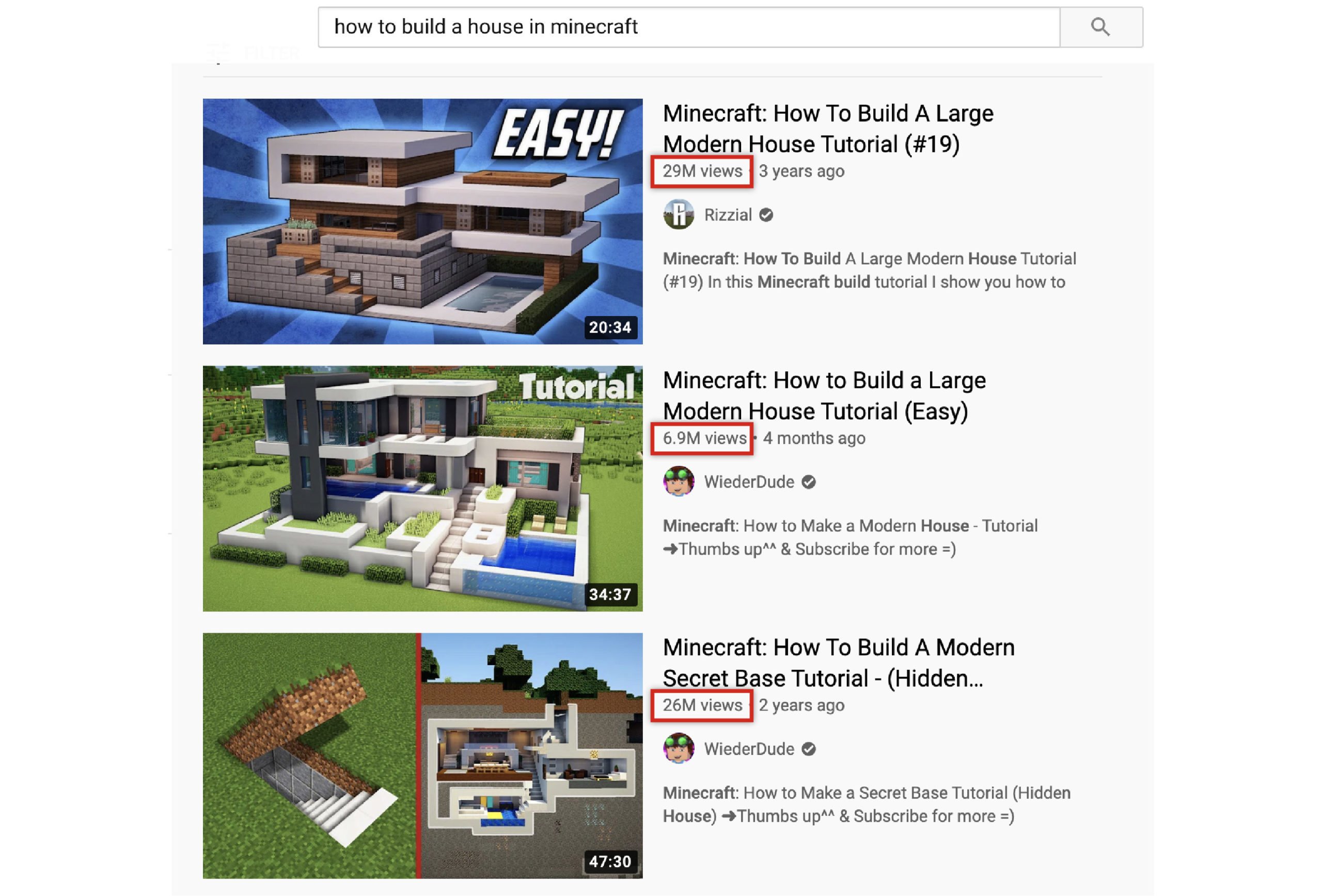
Bonus: With the steady rise of video as the primary format for advertising, those skills are in high demand, so you’ll always have a solid fallback career if the YouTube thing doesn’t work out.
Make Money Online
You’re probably noticing a theme here: the internet represents unlimited opportunity if you’re ambitious and creative enough to take full advantage.
Becoming an online entrepreneur is easier than you might think. Whether you choose to establish a freelancing business or set up an eCommerce store, there are plenty of shortcuts available. You can start by selling goods through a platform like Facebook Marketplace, Instagram, TikTok, or Pinterest, or you could use a dedicated eCommerce platform like Etsy, eBay, or Amazon.
If you have a following on social media, you can even make money by promoting other people’s products through affiliate marketing.
If you want to learn more about marketing, read our recent post How to Get Started In Digital Marketing.
Try a Trade
If you enjoy practical, hands-on work, you might consider learning a trade. In the U.S. and elsewhere, there is a growing talent shortage in trade jobs, with 62 percent of firms already struggling to fill positions. Welders, machinists, carpenters, plumbers, electricians, mechanics, technicians, nurses, and many other trade careers are seeing rising demand.
Many trades can be learned on the job through apprenticeships or through part-time courses, and technical diplomas and degrees take far less time than a four-year college.
Always Be Learning
If you take just one thing away from this post, let it be this: the best investment you can make is taking the time to teach yourself to be a lifelong self-directed learner. Aside from the clear benefit of gaining the ability to teach yourself sought-after skills, employers seek driven, flexible employees that can learn and relearn skills and increase their value to the business.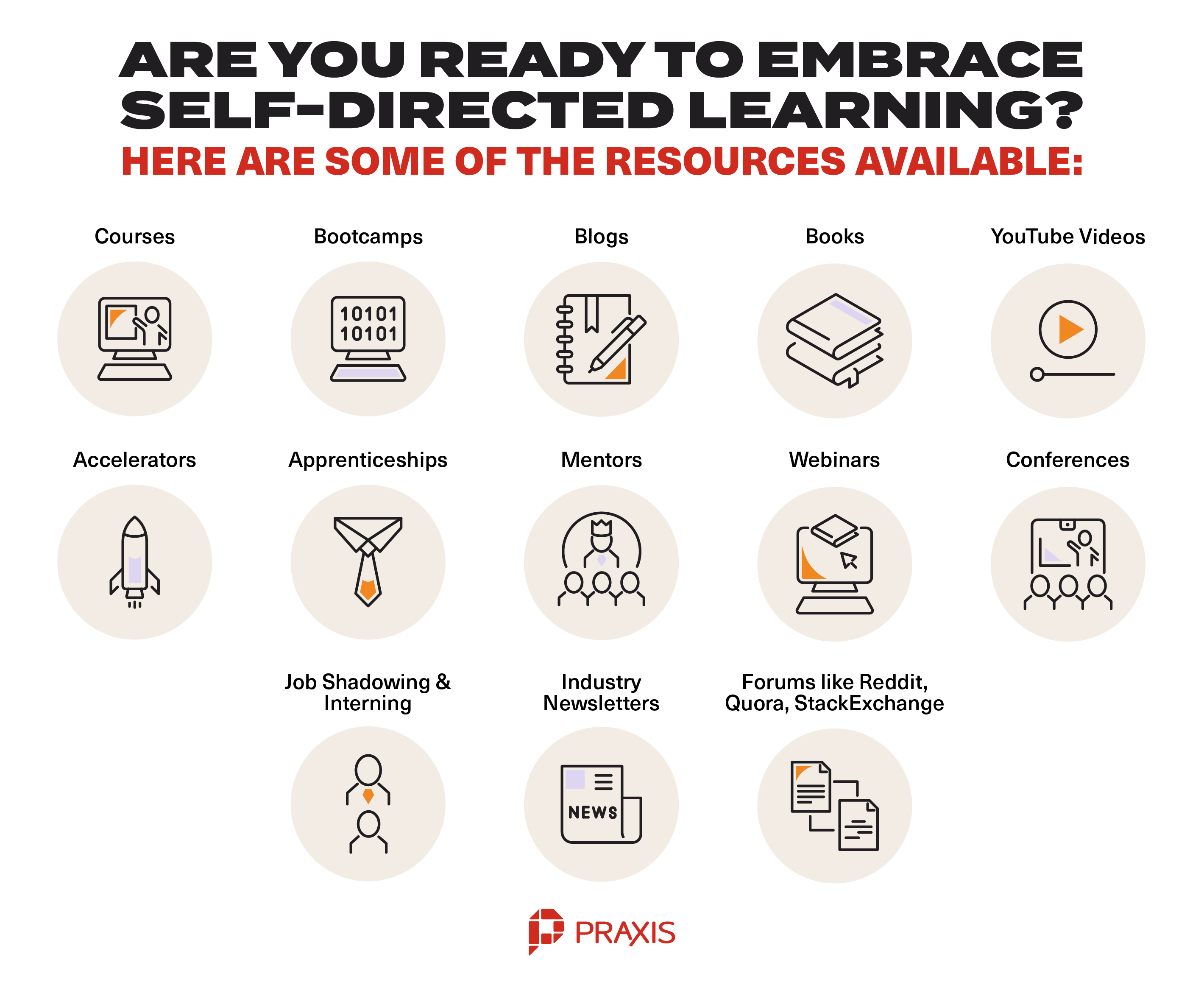
With all the resources at your fingertips today, you can learn just about anything, on your own.
For an in-depth guide to self-directed learning, read our post, Self-Directed Learning: A Primer for Ambitious Young Adults.
Try New Things, Even (Especially) If They Scare You
Whatever you end up doing after school, make sure you actively try new things and reflect on these experiences. The more you sample and experiment with working in different roles and industries, the sooner you’ll realize what kind of work makes you come alive.
Do things that scare you. For instance, if you hate public speaking, don’t hide from it – join Toastmasters and practice until you’re not only comfortable but confident speaking in front of a crowd. Do you get anxious about speaking on the phone? Do a stint working in an outbound call center or support role. The more you face the fears that you perceive as your “weaknesses,” the faster you’ll grow personally and professionally.
Rapid Prototype Your Career
A good way to look at figuring out what kind of career you want is in terms of rapid prototyping: you want to build what startup folks call a “minimum viable product” (MVP) that you can test as quickly as possible and iterate on. This approach is also known as “agile” product development, although in this case, the product under development is you.
Early in your career – especially if you’re not sure what kind of work you enjoy doing – you want to rapid prototype by running as many experiments as possible while the risk is low and you can get by on an entry-level income. In fact, we advise that you calculate the minimum amount of money you need to get by and not worry too much about income at first.
Here’s why: if you land a job earning $50K per year, you may be unwilling to change jobs unless you can find another that matches or exceeds the income you’ve come to expect. Instead, optimize your job shifts for growth, learning opportunities, and additional responsibility.
Each time you try out a new role, you’ll be exposed to a different perspective, new challenges, and new hard and soft skills that make you more valuable as a well-rounded employee.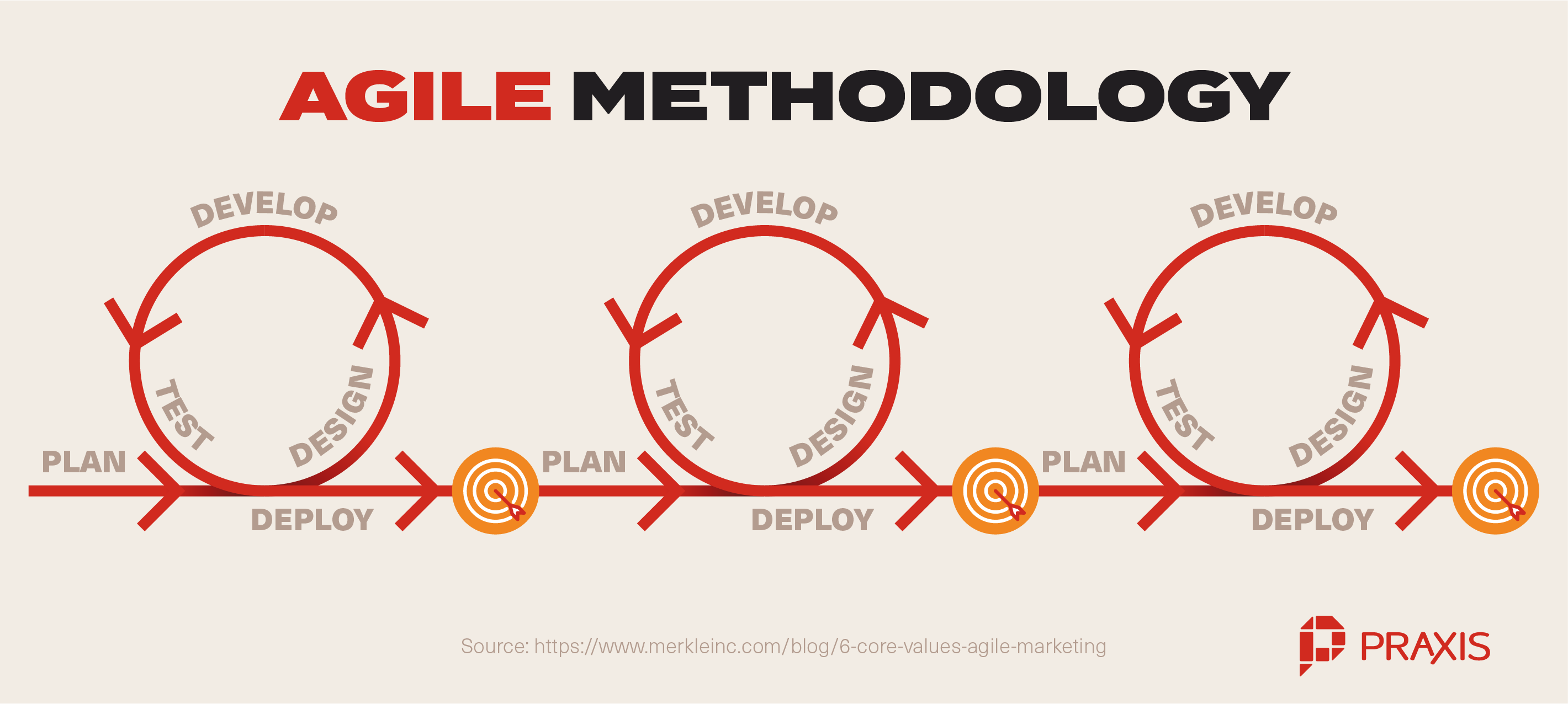
Think of it in terms of agile iteration cycles:
- Come up with an idea or plan – Choose a theory to test, e.g. “I want to be a software engineer.”
- Design your “product” – Plan your experiment, e.g. “I’ll get an internship or entry-level job at company X and see what it’s like to be a software engineer there.” Decide in advance how long your experiment will run for before you assess how your experience weighs up against your expectations.
- Develop your “product” – Get the job and give it your best shot.
- Test your “product” – evaluate your experience and consider what you’ve learned and how you’ve felt, and how you can build on this experience.
- Deploy – Take action: Will you move on to a different opportunity? Will you stay and start working towards a promotion?
Here’s another way of looking at maximizing your job experience and opportunities to help you figure out what kind of career you want: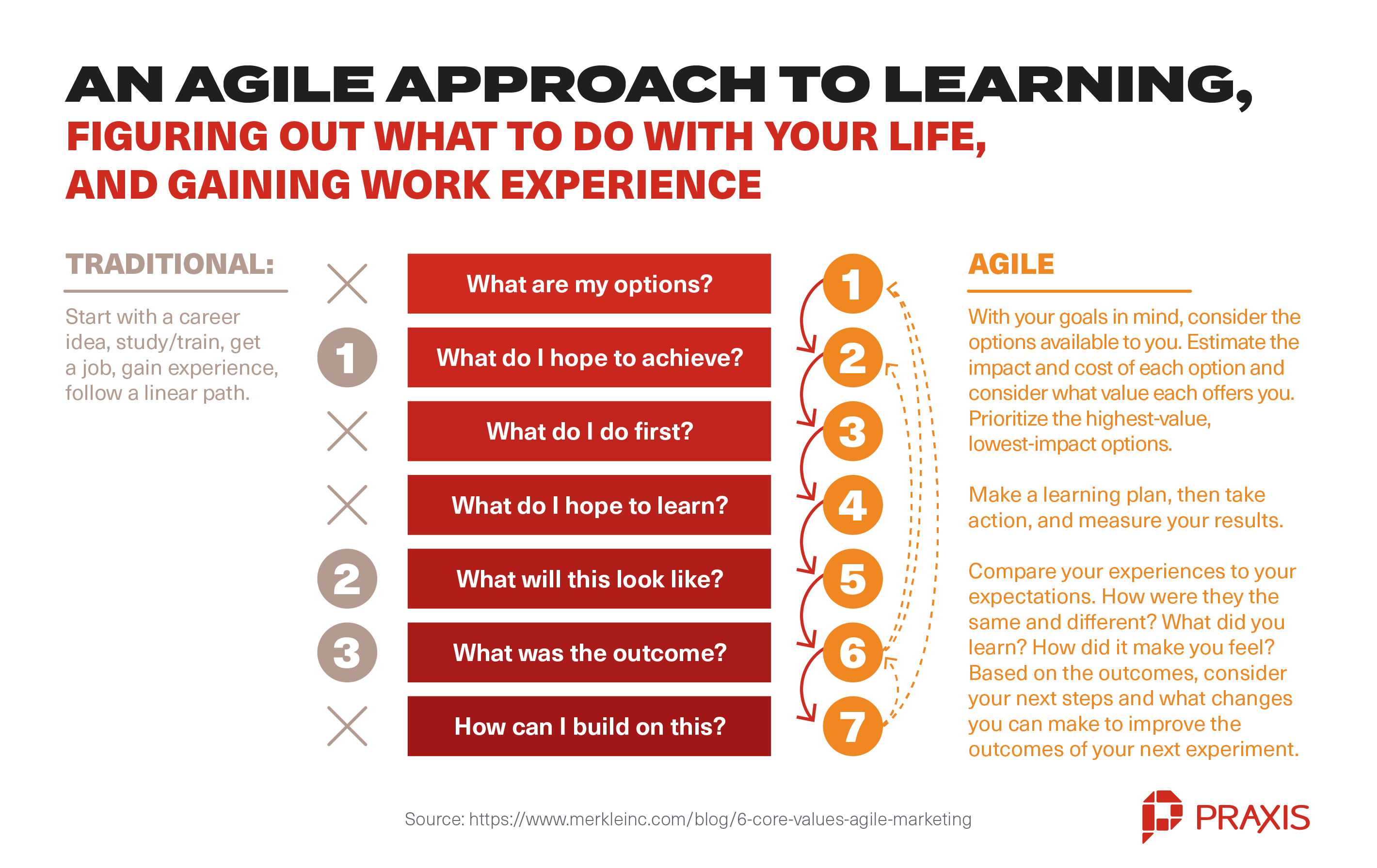
The traditional route follows a linear route: decide what you want to “do for the rest of your life,” get a degree or otherwise train for it, get a job and gain experience in your field, and try to get promoted.
An agile approach assumes that you won’t get it right the first time, which is why it focuses on short iteration cycles so that you can run multiple tests and continuously improve your “product” as you get more information or feedback.
Think about it this way: if you spend four years in college testing your theory that you want to be an accountant, but two years into being an accountant you realize that you’re bored and you want to try something else, that’s a very long iteration cycle. In those 4+ years, you could have run any number of experiments to validate whether or not you would enjoy being an accountant and you’d be far more likely to have gotten an idea of what you do enjoy doing.
Get an Internship (or Several)
Internships can give you a chance to get your foot in the door by starting at the bottom and working your way up by showing employers that you’re an effective worker who adds value by bringing the business closer to its goals.
Did you know that some 56 percent of interns converted into full-time hires in 2019?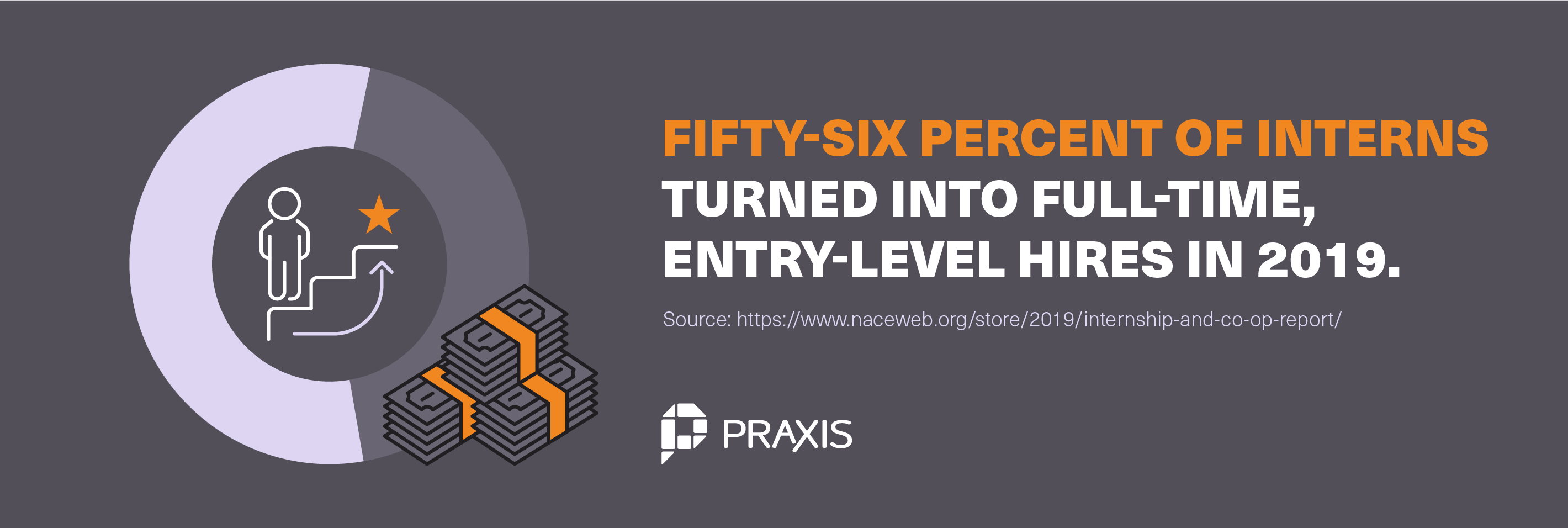
Internships are a great way to sample an industry and get a feel for different roles and responsibilities. This is even more true if you intern at a startup, where you’re likely to gain more diverse experience and be entrusted with more responsibility than at a large corporate.
Work for Free
This may seem counterintuitive, but compared to spending in the neighborhood of $100K on college, working for free has a low risk-to-potential-payoff ratio. Working for free is a great way to start building your project portfolio (your signal) while you’re still honing your skills.
Whether you’re an aspiring designer and you agree to help your aunt with her new business’s logo and branding, or you’re a budding web designer and you volunteer to build your local coffee shop a website, or a marketer-in-training who volunteers to manage a non-profit organization’s social media – this is all work that you can show future employers to demonstrate your ability to create value.
The cherry on top? This is a highly effective way to network. If you do a good job, the people you did the free work for might refer people your way for more (paid) work.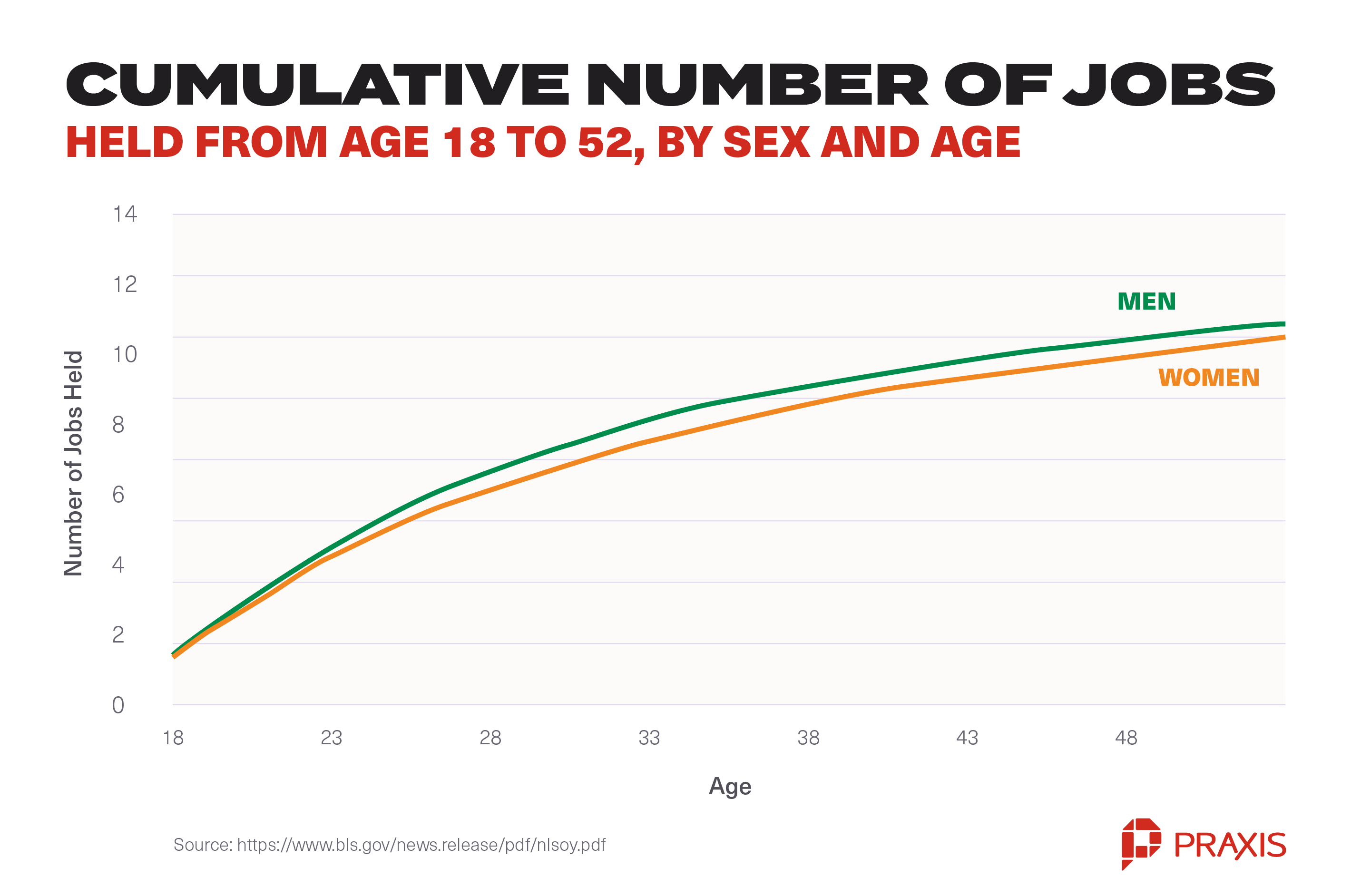
Don’t Worry About What You’re Going to Do “For the Rest of Your Life”
The idea that you’re supposed to figure out “what to do with the rest of your life” is a myth. Today, 30-year one-track careers are a thing of the past. In 2019, around 21 percent of millennials said that they had changed jobs within the past year, according to a Gallup poll. Another survey found that 58 percent of millennials said they plan to change jobs this year, in pursuit of better learning and growth opportunities. The same study found that 89 percent would change jobs if the right company or role came along.
Conventional wisdom says that you should stay in every job for at least a year or two to avoid coming across as flaky to future employers, but the truth is, no one cares how long you worked as a barista or a pizza delivery person, especially if you can clearly articulate that you hopped around in pursuit of personal growth.
Build Your Own Signal
“Show, don’t tell” is more than just a writing tip.
When it comes to convincing potential employers that they should hire you instead of the next guy, the best thing you can do is show them what kind of value hiring you would bring them.
In the days before the internet, prospective employers didn’t have access to much information about candidates, which meant that college degrees carried a lot of weight as a signal.
With more Americans now holding degrees than at any other point in history, the value of a degree as a distinguishing factor is declining.
The good news is that today, you can build your own signal that tells employers much more about you, the work you do, the way you think and behave, than any college degree.
How?
Create a digital footprint (your website, portfolio of projects, LinkedIn recommendations, Twitter feed, YouTube channel, podcast, Amazon reviews, you name it) that demonstrates your ability to create value.
Now, you might be thinking, “Where do I begin if I’ve never done this before?”
Why not start by creating a Venn diagram like the one below?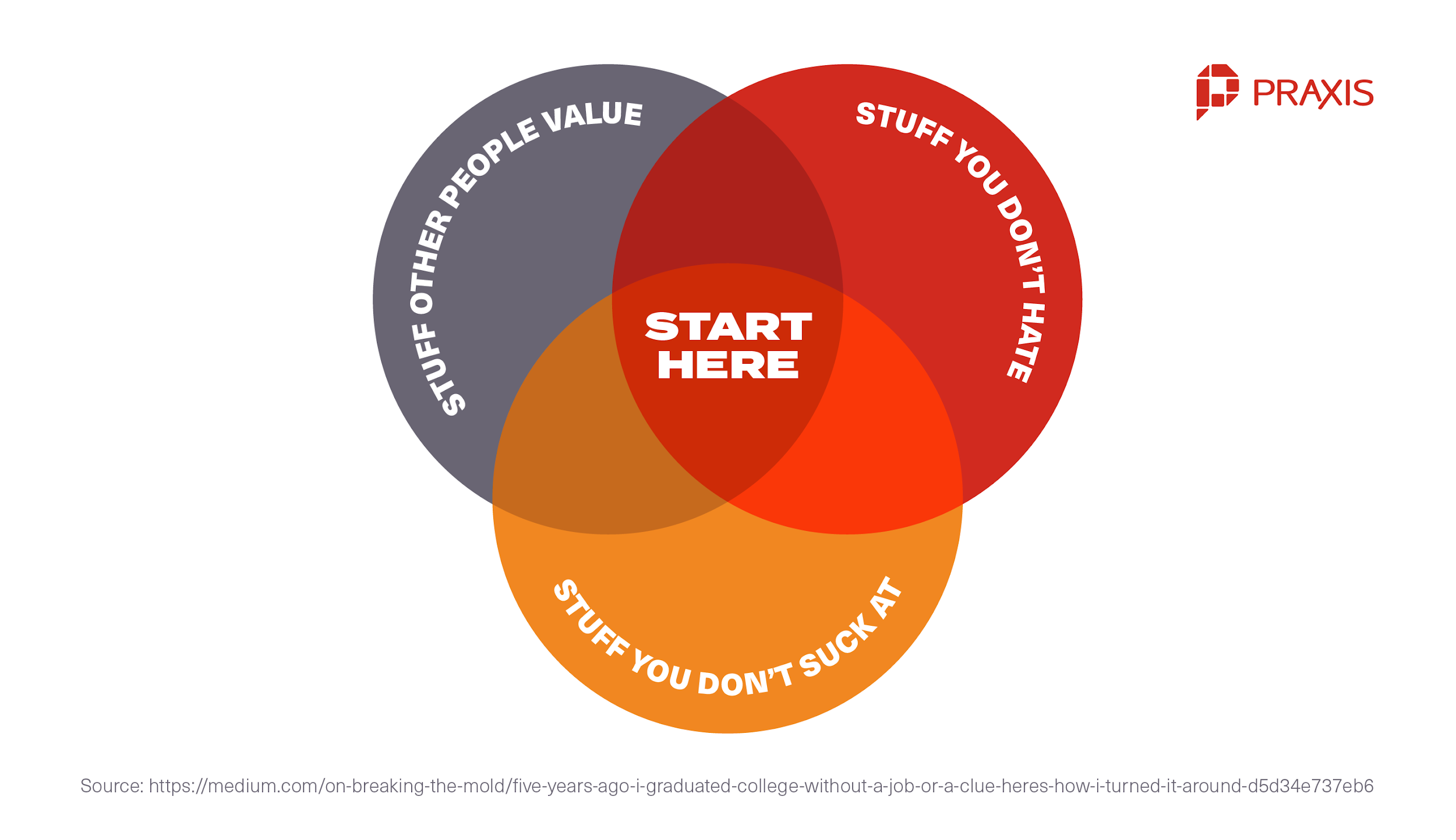
The whole point is trying to build a career that you find the right balance of exciting, challenging, and personally fulfilling, so it’s a good idea to start by weighing what you’re good at, what you enjoy (or at least don’t actively hate), and what other people seem to value. Combine this with some of the other tips we’ve discussed above, and you’ll soon have plenty of experiences to document and reflect on.
For more on this topic, read 3 Reasons Why You Should Learn Out Loud.
Join Praxis: The Ultimate College Alternative
Praxis is a college alternative that’s designed to put you in the driver’s seat of your career by shortening the distance between learning and finding a full-time paying job.
Our 12-month program is designed to help participants discover how business works and how their unique interests correspond to real-world careers. The aim is for participants to find opportunities that line up with their interests and talents – and then support them in building the skills they need to turn those interests into successful careers.
In the first six months (the bootcamp portion of the program) we help participants to develop their skills and practice them through portfolio projects – that is, we help them to build their own signal. During this time, we also help to match participants with full-time paid job opportunities, coach them through the application process, and provide ongoing support and mentoring for their first six months on the job.
We believe that our success should be tied to yours, which is why we’ve put skin in the game: if you don’t land a full-time job within six months of graduating from the program, you get your money back.
For more information, read our Program Guide, find out about our different payment plans, including deferring payment until you start earning, or read some of our graduates’ success stories.
Tags:
Career DevelopmentNovember 23, 2020
